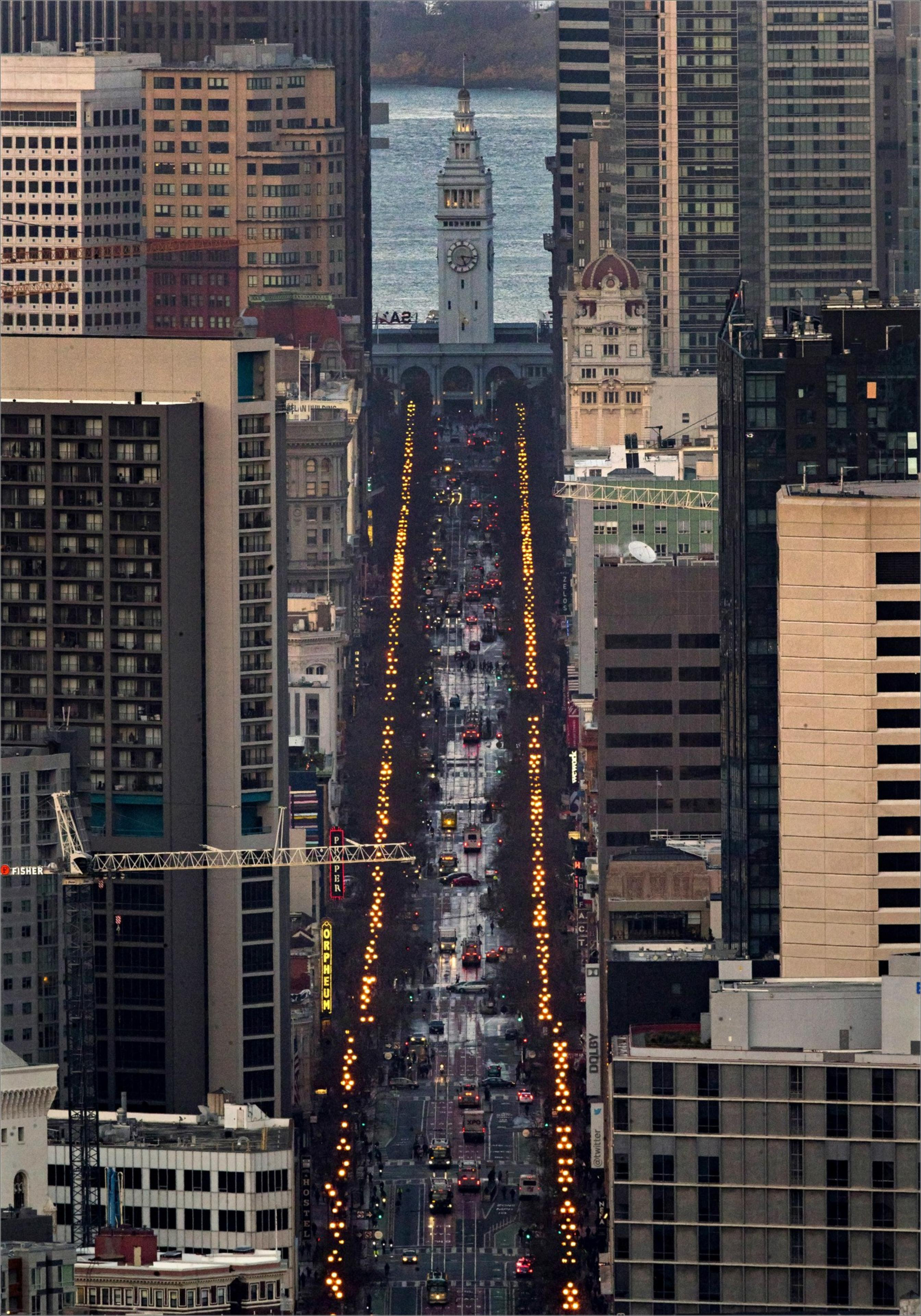After five years, some cars are coming back to Market Street.
Mayor Daniel Lurie has announced that autonomous vehicles and rideshare services will begin limited passenger operations Tuesday.
The San Francisco Municipal Transportation Agency will allow Waymo, Uber Black, and Lyft Black to offer pick-ups and drop-offs during off-peak hours at up to seven designated locations along Market Street:
- At Mason Street, in front of IKEA
- Sixth Street, southeast, in front of Blick
- Taylor Street, northeast, in front of Warfield
- East of Jones Street, mid-block south, in front of Urban Alchemy
- East of Jones Street, mid-block north, in front of Prism apartments
- Seventh Street, across from Proper Hotel
- Eighth Street, southeast, at Trinity Place and Lighthouse for the Blind
Under the initial agreement, Waymo vehicles will be permitted to operate from 9 a.m. to 4 p.m. and from 7 p.m. to 6 a.m. Uber Black and Lyft Black will operate from 7 p.m. to 6 a.m.
Private cars remain banned from the stretch of Market Street (opens in new tab) crossing downtown.
Lurie in April announced plans (opens in new tab) to bring Waymos to Market Street, which prompted blowback from Uber and Lyft.
Officials said the pilot program will assess safety, transportation efficiency, and demand before a potential expansion of the service.
“The Market Street corridor is key to our city’s recovery, and by thoughtfully expanding transportation options, we are going to bring residents and visitors back to enjoy everything Market Street has to offer,” Lurie said.
The pilot program follows the city’s other initiatives to revitalize downtown, including creating five entertainment zones across the city, renewing the First Year Free program to help small businesses open by waiving initial fees, and streamlining permitting processes.
The agreement marks a sharp reversal from the city’s policy barring ride-hailing pick-ups on Market Street, a restriction that has long frustrated Uber and Lyft. The companies lobbied against the 2020 ban, arguing that it hurt both riders and businesses downtown, while city officials defended it as a safety measure to reduce congestion and protect cyclists and pedestrians.

Julie Kirschbaum, SFMTA’s director of transportation, said the agency is balancing dual priorities: “Keeping cyclists and pedestrians safe and ensuring Muni and emergency services run efficiently without disruption.”
Waymo executives said the move builds on months of mapping and collaboration with the city. “Our technology significantly reduces collisions (opens in new tab) where we operate,” said Nicole Gavel, head of business development and strategic partnerships.
Uber and Lyft echoed the mayor’s message that adding rideshare services will help restore foot traffic to downtown restaurants, hotels, and shops.
Some local business owners praised the plan. “This is great news and a welcome change for Market Street small businesses, which have weathered significant challenges in the past few years and could really use a boost,” said Jeannie Kim, who owns several restaurants along the corridor.
Not everyone is thrilled, though.
The SF Bicycle Coalition has said allowing Waymo on Market Street will open “a Pandora’s box that will unleash irreversible harm.” Critics argue that the move will reverse years of safety progress, warning it will slow Muni, endanger cyclists, and open the door to more cars, undermining the corridor’s role as a safe, vibrant downtown street.
“No matter how safe Waymos are individually, more car traffic will make the street more dangerous for vulnerable road users,” Claire Amable, the coalition’s director of advocacy, wrote in April (opens in new tab). “Car-free Market Street has made SF’s Main Street safer for everyone.”
